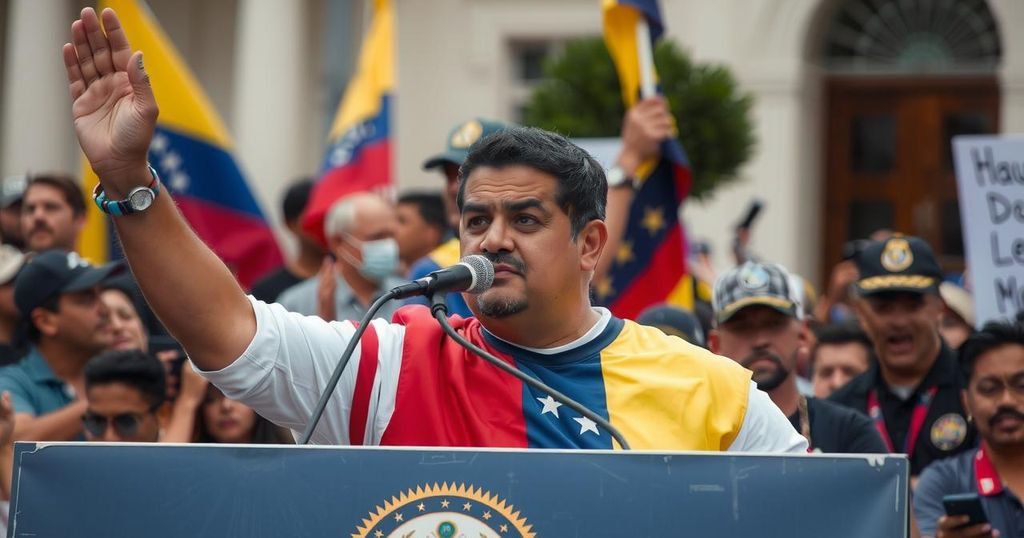Nicolás Maduro has been sworn in for a third term in office amid widespread outrage and allegations of election fraud. Most democratic leaders boycotted the event, while Maduro maintained claims of legitimacy despite evidence suggesting his opponent won. His inauguration drew international condemnation, and opposition leaders plan to resist his regime through civil disobedience.
Nicolás Maduro, the authoritarian leader of Venezuela, has been sworn in for a contentious third term despite significant backlash domestically and internationally regarding the legitimacy of the recent presidential election. During the ceremony, which was notably boycotted by most democratic nations, Maduro proclaimed, “This is a great victory for Venezuelan democracy.” His administration has faced fierce accusations of election fraud, particularly concerning the July 28 vote, where evidence surfaced supporting his opponent Edmundo González as the actual victor based on growing public dissatisfaction against the backdrop of Venezuela’s economic crisis.
The inauguration, held in Caracas, was attended primarily by officials from authoritarian regimes, including leaders from Cuba and Nicaragua, alongside representatives from China and Russia. Conversely, prominent leftist leaders such as Brazil’s Lula da Silva and Colombia’s Gustavo Petro chose to protest by not attending, emphasizing their refusal to recognize Maduro’s claim to power.
In a defiant 90-minute address, Maduro characterized his regime as a proponent of a “democratizing revolution” and attacked his political opponents as extremists. He vehemently rejected external claims regarding his presidency, asserting, “I wasn’t made president by the US government or the pro-imperialist governments of the Latin American right. I come from the people. I am of the people.” This proclamation drew sharp criticism from various international figures, including Chile’s leftist president Gabriel Boric, who declared Maduro’s government a dictatorship.
U.S. Secretary of State Antony Blinken reaffirmed international consensus on the legitimacy of the elections stating, “The Venezuelan people and the world know that Nicolás Maduro clearly lost the 2024 presidential election and has no right to claim the presidency today.” Additionally, the UK government announced renewed sanctions against Maduro’s regime, indicating a robust international response to the apparent violation of democratic norms in Venezuela. Despite the mounting international calls for a return to democracy, Maduro’s administration continues to suppress dissent, leading opposition leaders to advocate for civil disobedience as a means to challenge his authority.
Nicolás Maduro has been a controversial figure in Venezuelan politics, having taken power following the death of Hugo Chávez in 2013. His governance has been characterized by increasing authoritarianism, economic turmoil, and widespread allegations of human rights violations. The recent elections that sparked outrage were contested due to claims of fraud, with significant opposition figures accusing Maduro of manipulating the electoral process to maintain his grip on power. The situation in Venezuela is further complicated by geopolitical factors, with various countries holding differing positions on Maduro’s legitimacy as a leader.
The inauguration of Nicolás Maduro for a third term has highlighted the deepening divisions within Venezuela and intensified international scrutiny regarding human rights and democratic governance in the country. With widespread allegations of election fraud and condemnation from both leftist allies and Western governments, Maduro remains a polarizing figure in the political landscape. As calls for civil disobedience and non-violent resistance grow among opposition figures, the future of Venezuela’s democracy hangs in the balance, alongside the economic and humanitarian crises facing its populace.
Original Source: www.theguardian.com






